US bombs Iraq’s anti-terror fighters on Biden’s order
The US says President Joe Biden ordered military airstrikes against facilities belonging to anti-terror resistance groups on the Iraqi-Syrian border.
Pentagon press secretary John F. Kirby told reporters that Biden authorized the strikes on Thursday, allegedly destroying multiple facilities at a border control point used by Hashd al-Sha’abi fighters, including members of Kata'ib Hezbollah and Kata'ib Sayyid al-Shuhada groups.
Kirby claimed that the strikes were in response to recent attacks against American and allied personnel in Iraq.
A rocket attack on Feb. 15 on the airport in Erbil, in northern Iraq, allegedly killed a Filipino contractor with the US military and wounded six others.
Another salvo hit a base hosting US forces north of Baghdad days later. At least one contractor was hurt as a result. American officials said Thursday’s strikes were relatively small and carefully calibrated.
In the US attack, however, seven 500-pound bombs were reportedly dropped on a cluster of buildings at the Syria-Iraq border.
A reliable source told Press TV on Friday that one fighter was killed and four others were injured in the attack.
A US official, speaking on the condition of anonymity, claimed that the United States did not want to escalate the situation into a bigger conflict.
The official said Biden was presented with a range of options and one of the most limited responses was allegedly chosen.
Over the week, numerous reports had emerged about unusual movements by US troops near the border between Iraq and Syria.
A report on Monday said swarms of helicopter gunships and drones were flying over al-Anbar. Iraq's al-Maloumah news agency cited an unnamed security source as saying that the unusual overflights above al-Qa’im District extended as far as the border with Syria.
US troops are based across the border in al-Tanf in Syria, where militants fighting the Syrian government are reportedly trained and armed and used for operations in Iraq and elsewhere.
Over the years, there have been numerous reports about the infiltration of Daesh elements from Syria into Iraq under the protection and logistical assistance of US troops.
Hashd al-Sha'abi and its affiliates, which have been integrated into Iraq's regular forces, are deployed on the Syrian border and helping the army to stem the movement of terrorists between the two countries.
Suspicious attacks, supposedly against US targets but often with little impact, have escalated over the past year, especially since the Iraqi parliament passed a law that mandated a full withdrawal of all foreign troops from the country.
Experts say the rise in terrorist activities is apparently aimed at creating a sense of insecurity in Iraq and providing a pretext for the US to keep its troops in the country.
Since late 2019, the United States has carried out strikes against anti-terror Kata'ib Hezbollah resistance group in Iraq and Syria.
On January 3 last year, Iran's legendary commander General Qassem Soleimani and his Iraqi trenchmate Abu Mahdi al-Muhandis were targeted along with their companions in a terror drone strike authorized by former US president Donald Trump near Baghdad International Airport.
On January 8, 2020, Iran targeted the US-run Ain al-Assad air base in Iraq’s western province of Anbar with a volley of missiles. Iran has described the missile attack on Ain al-Assad air base as a “first slap.”
‘US transferring Daesh terrorists to al-Tanf base’
Syria’s official news agency SANA on Thursday reported that US military forces plan to transport a new batch of imprisoned Daesh terrorists from the northeastern Syrian province of Hasakah to the al-Tanf military base near the border with Jordan.
Local sources, speaking on condition of anonymity, said US military vehicles entered a prison at the southern flank of Hasakah, and left shortly with 10 jailed Daesh terrorists, among them commanders, on board.
The sources said military helicopters flew overhead as the vehicles headed to the US base in al-Shaddadi town.
The sources went on to say that the Daesh prisoners would undergo medical checkups at the base, before being sent to al-Tanf base and trained to carry out attacks against Syrian army positions, roads as well as critical infrastructures.
In a meeting with Iraqi President Barham Salih in Baghdad earlier this month, Iranian Judiciary Chief Ebrahim Raeisi said the United States was relocating Daesh terrorists from their former bastions in Syria and Iraq under the guise of fighting terror.
“While Iraq, Syria, Iran and regional countries are working together to eliminate the remnants of Daesh, the Americans do nothing but relocate the Daesh terrorists in the region,” Raeisi added.
The Syrian army has the backing of Iran, Russia and Lebanon’s Hezbollah resistance movement in its battle against a host of foreign-backed militant groups, which have been wreaking havoc on the country since 2011.
Syrian government troops and their allies have managed to retake roughly 80 percent of the war-ravaged Arab country’s territory from the Takfiri terrorists.
The Syrian army is fighting to drive out the remaining terrorists, but the presence of US and European forces and Turkish troops has slowed down its advances.
Inhuman US-led sanctions
Separately, Syria’s new Permanent Representative to the United Nations, Bassam Sabbagh, said the Damascus government is providing humanitarian services to people despite the daunting challenges of combat against terrorism, Western sanctions as well as Israeli occupation and acts of aggression.
Sabbagh stressed that the politicization of the Syria humanitarian crisis has increased the sufferings of people in the war-ravaged country, and that reports presented to the Security Council have helped some states deviate the world public opinion from addressing the root causes of the degrading humanitarian situation in Syria.
“Any report or briefing submitted to the Security Council will be erroneous and misleading as long as it turns a blind eye to the crimes being perpetrated by terror groups in Syria,” Sabbagh said at the Council’s virtual session on Thursday.
The diplomat underlined that Western sanctions against his country have prevented Syrians from acquiring their basic commodities.
“These illegal measures represent a flagrant violation of the international law and constitute a collective punishment of Syrians as recognized by the UN itself,” Sabbagh highlighted.
He condemned what he termed as Ankara’s Turkification process in northern Syria regions, and protection of Takfiri terrorist groups to desecrate properties, and loot crude oil fields in addition to agricultural crops.
Sabbagh added that the United States and its allied militants exploit Syria’s natural resources, smuggle them abroad and obstruct humanitarian access to al-Rukban refugee camp near the border with Jordan.
He called on Western countries to take back their nationals, who have joined the Daesh terrorist group, and assume their legal obligations and responsibilities.
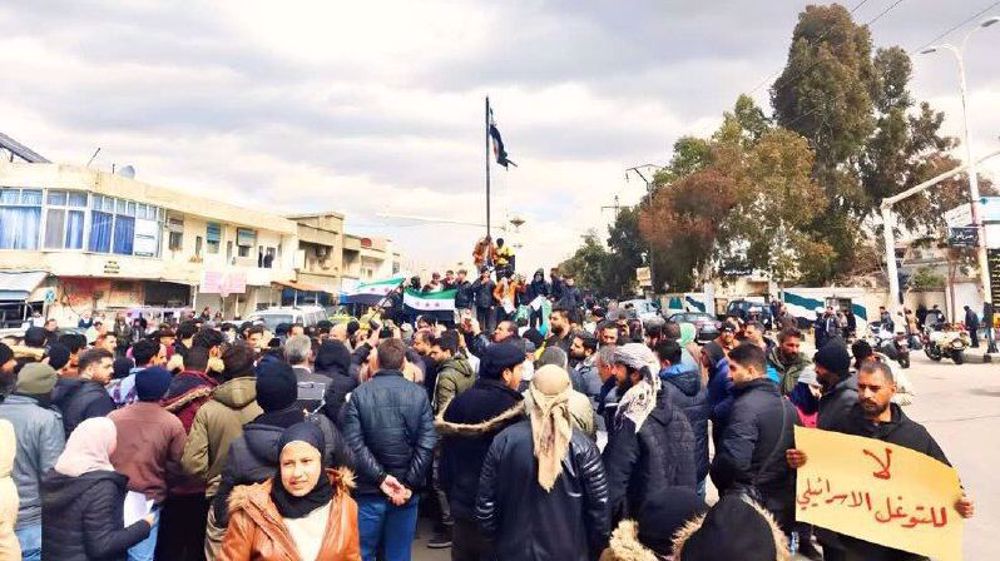
Angry Syrians take to streets after Israel says it won’t allow Syrian forces in occupied south

Iraq warns Syria over security threats posed by Daesh remnants
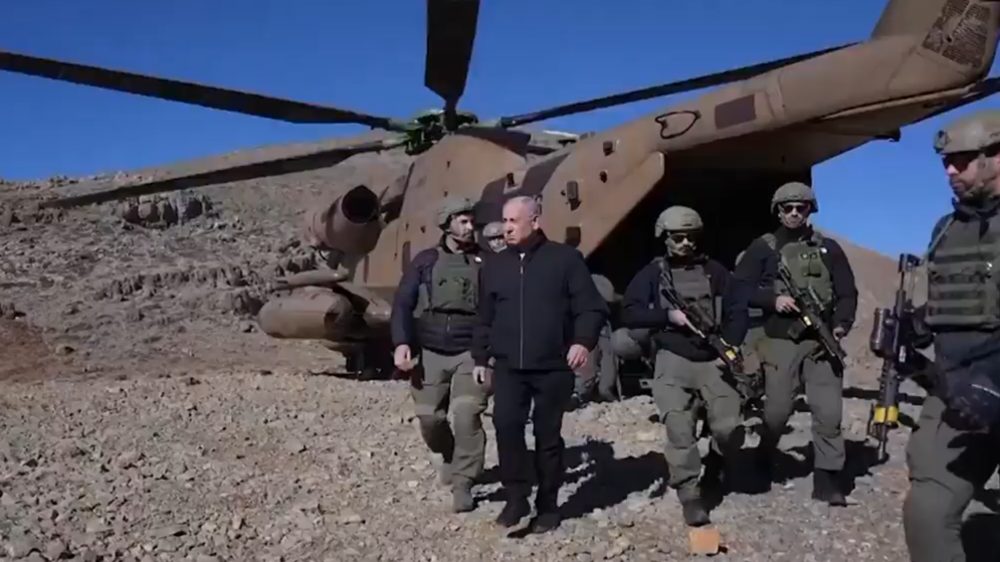
Netanyahu: Israel won't allow Hayat Tahrir al-Sham forces in southern Syria
Iran bans exports of some crops amid soaring domestic prices
VIDEO | Gazans striving to survive with bare hands
'Shocking attack on free expression': Canadian politician slams arrest of pro-Palestine activist
West Bank Palestinians fear Gaza style destruction as Israel escalates raids
Hamas: Ibrahimi Mosque massacre testament to Israel’s criminal policy
Trump eyes Ukrainian rare earth minerals in exchange for military support to Kiev
Six Gaza children, including newborn girl, die of cold weather as Israel blocks aid
Iran rules out nuclear talks with US amid ‘maximum pressure’ campaign










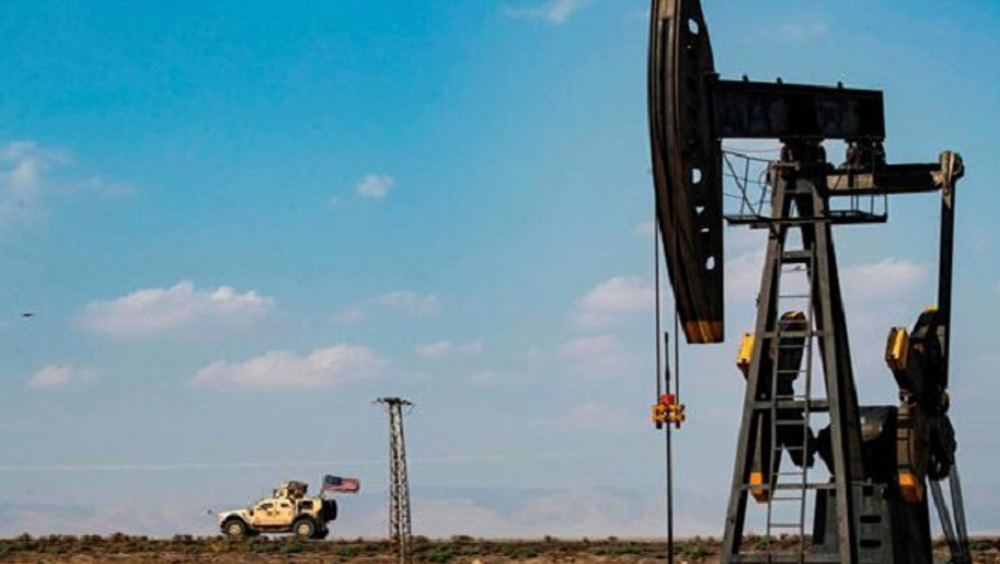
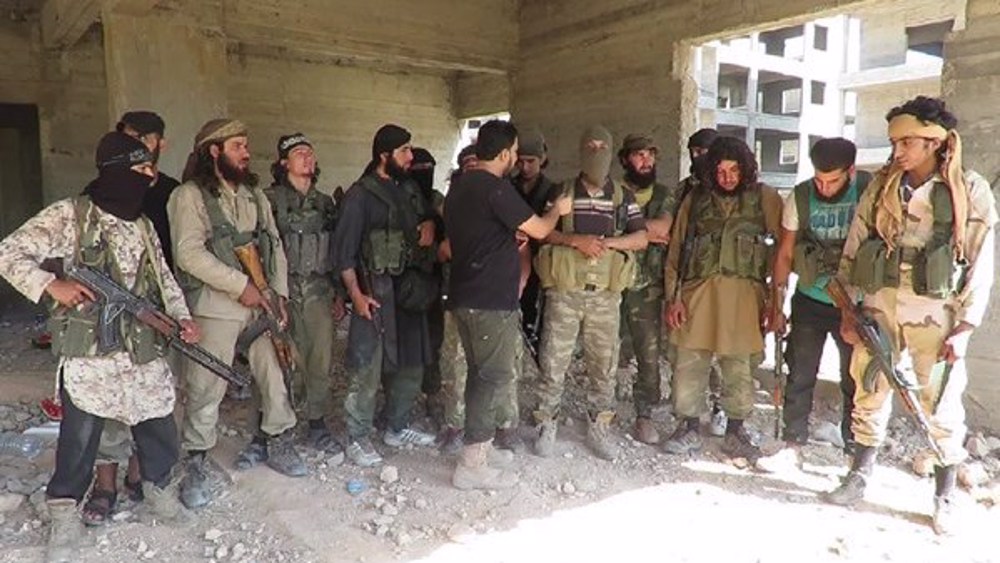

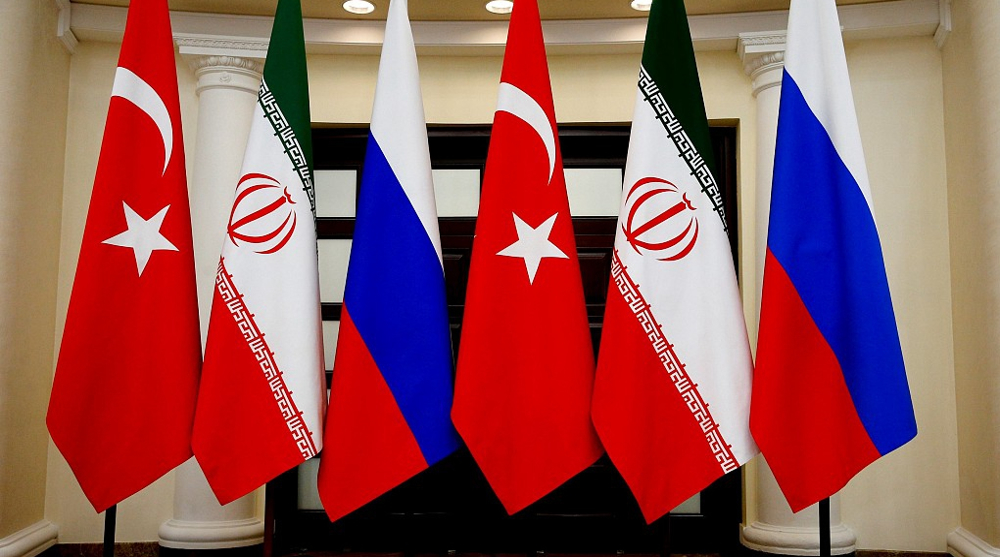


 This makes it easy to access the Press TV website
This makes it easy to access the Press TV website